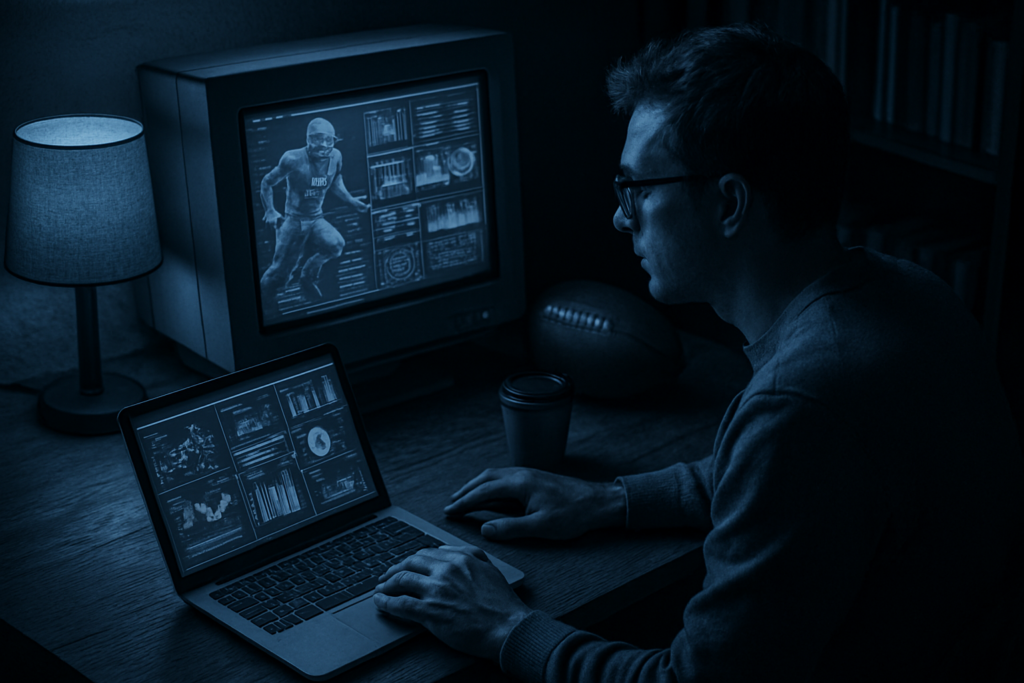Understanding Betting Odds
Betting odds represent the probability of an event occurring and determine potential winnings. Odds appear in three main formats: fractional, decimal, and moneyline.
- Fractional Odds (e.g., 5/1): Fractional odds show the profit relative to the stake. For instance, for odds of 5/1, a successful $10 bet results in a $50 profit.
- Decimal Odds (e.g., 6.0): Decimal odds indicate the total payout, including the stake. A $10 bet at 6.0 decimal odds returns $60.
- Moneyline Odds (+500/-200): Moneyline odds express potential profit or required stake. Positive odds, like +500, mean a $100 bet yields $500 profit. Negative odds, like -200, require a $200 bet to win $100.
Bookmakers set odds based on their assessment of an event’s likelihood, balancing potential payouts against attracting bets. Comparing odds across platforms grants insight into varying perspectives on an event’s outcome, a crucial factor for enhancing betting strategies. Discrepancies highlight differences that can impact profitability, underscoring the value of thorough odds evaluation.
The Importance Of Comparing Betting Odds
Comparing betting odds is essential for enhancing potential gains and finding value in bets. Odds fluctuate among bookmakers, affecting overall profitability.
Maximizing Potential Payouts
I recognize that maximizing payouts depends significantly on comparing odds. Bookmakers offer different odds for the same event. For instance, if Bookmaker A offers decimal odds of 2.50 and Bookmaker B provides 2.30, betting with Bookmaker A promises higher returns for the same stake. This simple choice can increase winnings by a substantial margin over time.
Identifying Value Bets
Value bets occur when the probability of a certain outcome is higher than what the odds suggest. When I find a bookmaker offering odds that imply lower probability than my assessment, I’ve identified a value bet. For example, if odds indicate a 40% chance but my analysis suggests a 50% likelihood, there’s potential value. Consistently pinpointing these discrepancies potentially boosts profitability.
How To Compare Betting Odds Effectively

Comparing betting odds demands attention to detail and strategic use of resources. I focus on methods that maximize potential benefits by evaluating available options thoroughly.
Using Betting Odds Comparison Websites
Betting odds comparison websites provide a streamlined way to evaluate odds. These platforms aggregate odds from various bookmakers, offering a comprehensive view. I leverage these sites to avoid the tedious task of manually checking multiple sportsbooks. Key advantages include:
- Real-Time Updates: Websites offer instant updates, ensuring I act on the most current information.
- Wide Coverage: They cover numerous sports and events, enabling informed decisions on a variety of bets.
- Customization Options: I can set preferences for specific sports or bookmakers, tailoring the data to my needs.
Analyzing Odds Across Different Sportsbooks
Directly analyzing odds from different sportsbooks reveals discrepancies that websites might miss. I compare odds by:
- Cross-Checking Consistency: I identify patterns in odds fluctuations across bookmakers, understanding market trends.
- Evaluating Market Movements: Sudden changes in odds provide insights into market reactions to new information, which I use to adjust my strategy.
- Identifying Value Bets: By spotting significant deviations, I pinpoint value bets, where the implied probability is lower than my assessment of the actual likelihood.
These techniques not only enhance my betting strategy but also improve overall profitability.
Common Mistakes To Avoid When Comparing Odds
Relying Solely on a Single Source: Limiting myself to one bookmaker or a single odds comparison site can lead to missing better opportunities elsewhere. I ensure that I use multiple sources to gather a comprehensive view of the available odds.
Neglecting Different Odds Formats: Assuming that all odds come in my preferred format can cause calculation errors. I adapt by familiarizing myself with fractional, decimal, and moneyline odds to make informed decisions.
Overlooking Market Movements: Ignoring shifts in odds over time prevents me from identifying potential trends and value bets. Monitoring market movements helps me understand the factors influencing odds fluctuations across sportsbooks.
Ignoring Hidden Fees or Margins: Failing to account for bookmakers’ fees or profit margins can skew my perception of the value offered. I pay attention to these elements, ensuring I accurately assess the true potential return on my bets.
Not Accounting for Event-Specific Influences: Disregarding factors specific to the event, like team news or injuries, can affect odds. I integrate this information into my odds comparison to provide a more accurate evaluation.
By avoiding these common mistakes, I improve my odds comparison strategy, enhancing my potential for better returns in sports betting.
The Future Of Betting Odds Comparison
Technological advancements are reshaping how bettors compare odds. Machine learning and artificial intelligence enable more accurate predictions, analyzing vast data sets quickly and efficiently. These technologies can identify patterns and trends that aren’t easily noticeable, giving bettors an edge in finding favorable odds.
Blockchain technology is also influencing odds comparison. It improves transparency and security, helping bettors trust the odds they’re given. Smart contracts on blockchain platforms enable secure and automatic transactions, reducing the possibility of manipulation and fostering a fairer betting environment.
Mobile applications enhance accessibility. They allow bettors to compare odds anytime, anywhere, streamlining the decision-making process. With real-time updates and notifications, these apps ensure bettors don’t miss out on the best odds available.
Social media integration provides bettors with additional resources to compare odds. Through online communities, forums, and social platforms, bettors can share insights, strategies, and tips, fostering a collaborative environment for better decision-making.
Augmented reality (AR) shifts the way bettors interact with odds. AR enhances the user experience by providing immersive visualization, allowing bettors to intuitively compare odds and understand their implications in a visually engaging format.
As these innovations integrate into the betting landscape, bettors can expect a more dynamic and efficient odds comparison process, ultimately leading to more informed betting decisions and potentially higher payouts.








